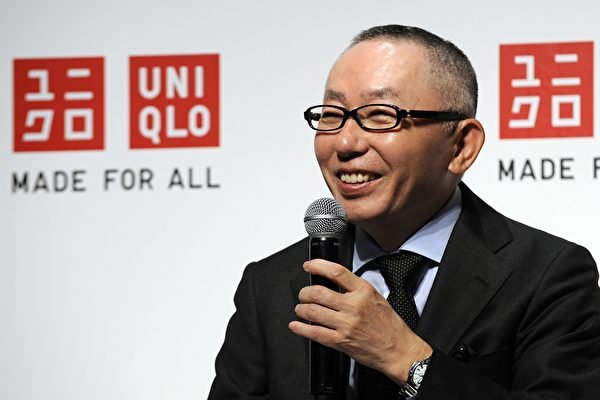Global fashion chain Uniqlo’s parent company Fast Retailing’s CEO and Japan’s richest person, Tadashi Yanai, recently stated that Uniqlo products do not use cotton from Xinjiang. This statement sparked a call from some internet users to boycott Uniqlo, dubbed as “little pink,” while many others opposed this boycotting action.
On Thursday, November 28, the British Broadcasting Corporation (BBC) aired an interview by Japanese journalist Mariko Oi with Tadashi Yanai, CEO of Fast Retailing, Uniqlo’s parent company and Japan’s richest person.
When asked about whether the clothing’s raw materials involved human rights issues, Yanai replied, “We do not use (Xinjiang cotton).”
He then added, “Regarding what kind of cotton we use…” pausing for a moment, before continuing, “In fact, if I say more, it becomes too politicized, so let’s stop here.”
Following this, the video spread widely in China, sparking anger among many Chinese internet users, who vowed to boycott Uniqlo.
“A Chinese citizen left a message on social media X, saying, ‘China is blowing up everywhere, finding a country or company to hate every few days.'”
According to the BBC’s video, Yanai simply answered “do not use” during the interview and avoided delving into further details. However, the phrase “do not use” in mainland China’s online context became an official stance, conveying a position and attitude. Despite the backlash, some rational-thinking internet users dared to express their thoughts.
An internet user on Sohu’s website commented, “The chairman’s words were: ‘We do not use,’ six words, indicating the importance of the Chinese market and unwillingness to take a political stance. Other additional interpretations should not be added.”
Another internet user on Ifeng’s website cautioned, “Considering others’ difficulties, not using Xinjiang cotton but using cotton from other parts of China, and manufacturing in China. If this is also boycotted, all imported brands would be boycotted, and Uniqlo products are mostly produced in China. Who has the capability to drive Uniqlo out of China? To truly love one’s country, one must first love their compatriots, not blindly boycott.”
Apart from China, Uniqlo also produces clothing in countries like Vietnam, Bangladesh, Indonesia, and India. In 2009, Yanai told the BBC that the costs in China were high, and the company was moving production to “lower-wage Cambodia to maintain low prices.”
Another netizen wrote, “The choice of raw materials is an independent business decision for companies. As long as they do not disparage our country and our products, I won’t tie this behavior with patriotism or nationalism. I will support products with high cost performance regardless of their country of origin.”
The netizen also added, “This year, due to consumption downgrade, I switched from T-shirts of overseas brands to well-known domestic brands. Both are made of pure cotton, but the comfort and experience of wearing overseas brand T-shirts are superior. Although I don’t understand what kind of cotton material it is, China’s products still need to self-improve.”
When discussing Uniqlo’s success reasons and why it attracts global consumers, Yanai mentioned that Uniqlo’s goal is to produce high-quality products that appeal to everyone, including super-rich individuals, not just those with refined taste but also those less knowledgeable about clothing. The designs are superb, and the materials are top-notch.
Currently, Uniqlo has been in operation for over forty years and has over 2500 stores worldwide. The parent company, Fast Retailing Group, recently surpassed $20 billion in annual sales.
Despite calls for a unilateral boycott and demands to drive Uniqlo out of China, some Chinese netizens expressed different opinions. One netizen said to others, “Uniqlo, you can buy or not buy, it’s your right.”
“Calling for a boycott seems a bit excessive; it’s a common business choice. There could be many reasons, such as price or personal relationships, maybe even political reasons, no need to overreact,” the netizen added.
Ben Cavender, Managing Director of the Shanghai-based China Market Research Group, told Reuters that it is too early to determine if lasting damage will occur now. However, considering the challenges the clothing industry currently faces, losing a small portion of Chinese consumers may not lead to significant losses for the entire industry.
In 2022, the United States implemented strict monitoring on goods imported from Xinjiang. Many global brands discontinued products using Xinjiang cotton, leading to boycotts by Chinese internet users against these brands like H&M, Nike, Burberry, Esprit, and Adidas.

